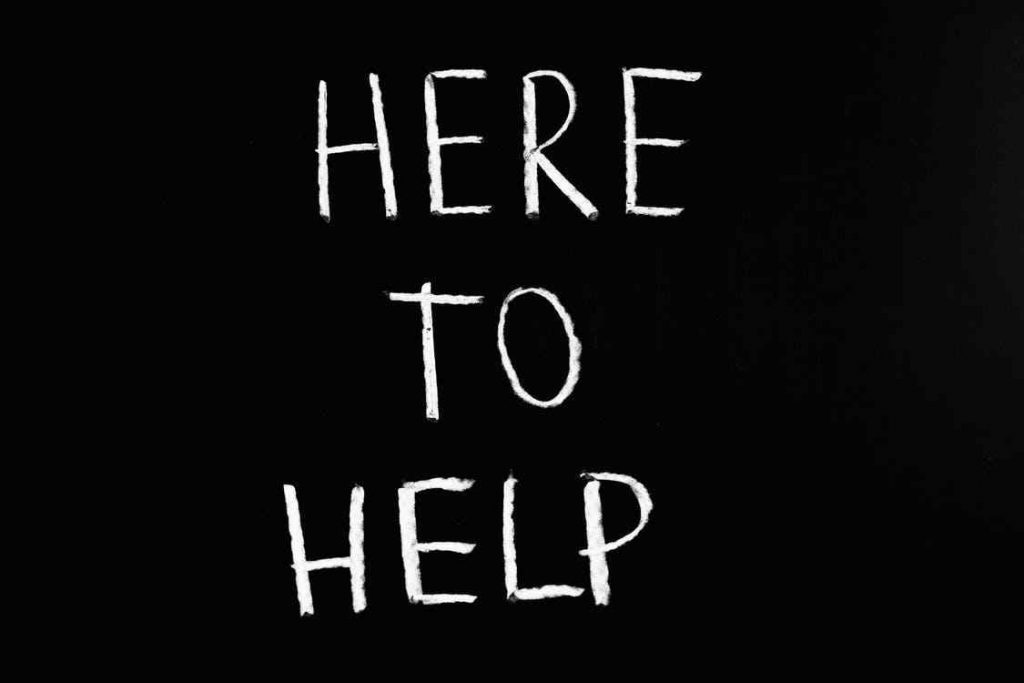A Small-Guide To Help Someone With Schizophrenia

Dealing with someone or helping someone with schizophrenia is not an easy task to do! It requires a lot of research, information, and knowledge to help someone with schizophrenia. If you’re here to help your loved one overcome schizophrenia, you might want to first gain some knowledge and basic information about schizophrenia to help them in a better way.
Here are some topics that will help with a complete overview of schizophrenia:
- What is Schizophrenia and what are the different types of Schizophrenia?
- Understanding the three phases of Schizophrenia
After gaining insights into schizophrenia, it’s time to help your loved one from overcoming schizophrenia. This blog will help you in understanding how to help someone with schizophrenia by finding the right treatment, building a positive life, and coping with the signs of schizophrenia.
First of all, let us understand, what to do when you find that your loved one has schizophrenia?
What to do when your loved one has Schizophrenia?

Finding that your loved one or family member is suffering from schizophrenia can be really heart-wrenching. The key to helping your loved one with schizophrenia is to become strong, well-informed, and helpful. I completely understand that you might be having emotions like anger, guilt, fear, or frustration.
You may feel helpless, however, grasping the right information and right ways to help your loved one are going to help you in building your strength and helping someone with schizophrenia.
However, it is really important to acknowledge that schizophrenia can be treated and recovery is possible with support. Before, you prepare yourself to help someone with schizophrenia, prepare yourself with these tips:
- Accept and prepare to fight with difficulties
- Get complete information
- Do your best
- Pay attention to your needs as well.
- Never lose hope.
How living with Schizophrenia affects lives?
Schizophrenia is a serious mental health issue that can be more challenging for everyone. Living with schizophrenia impacts the ability to hear, listen, and think positively.
While you begin to help someone with schizophrenia that the journey of healing can be full of ups and downs, there can be good days and bad days, and you must prepare for all. A loved one’s odd behavior and emotional distancing might break you, but you have to be strong and you must build resilience.
Steps to Help Someone with Schizophrenia
this section will help you in seeking step-by-step help to process emotions, feelings, symptoms, and more of someone who is experiencing schizophrenia.
Step 1: Start treatment right away
Whenever your loved one gets diagnosed with signs of Schizophrenia, you should not wait and start the treatment right away. treatment will help in reducing the symptoms as well it will help in reducing the risks of a crisis situation.
while the first step is to begin the treatment, you might have to convince them to seek therapy as seeking therapy is related to various stigmas. Additionally, it is important to provide them with options so that they can choose the best for themselves.
Always accompany them to the appointment so that they can feel supported. if you find any suspicious behavior or signs, convey them to the therapist so that they can have a look at them.
Step 2: Monitor symptoms, behaviors, and medication
After the treatment starts, you should alert yourself to monitoring medication, homework provided by the therapist, or suggestions provided by the therapist. Additionally, you must take the side effects seriously and must tell the side effects the therapist so that they can change or add the medications.
Moreover, you must also avoid alcohol or drug usage to avoid drug interactions. Mixing drugs or alcohol is highly harmful and if there are such signs, you must call the therapist ASAP.
Step 3: Watch signs or symptoms of Schizophrenia relapse
For the effective treatment of the individual always provide medications on time and do not stop any medication before consulting with the therapist. It will help in avoiding the relapse of schizophrenia. Hence, it is extremely necessary to take all the prescribed medicines on time, it will help prevent an emergency situation.
below are some common signs of relapse in schizophrenia:
- Social withdrawal
- Increased paranoia
- Confusion
- Insomnia
- Lack of personal hygiene
- Disrupted speech
- Strange appearance of behavior or personality
- Hallucinations
Step 4: Prepare a plan for emergency situations
Regardless of your efforts and hard work to prevent relapse of schizophrenia, it might happen that your loved one’s symptoms deteriorate. Therefore, you must always keep your emergency plan ready.
To plan an emergency plan, you can note down the emergency contact information, write down the contact number of the hospital or psychiatric admission, or add the contact number of relatives or friends.
Below are the quick tips to handle a crisis situation of schizophrenia:
- Watch out for signs of acute psychosis
- Loved one losing control or being terrified of their feelings
- Never express anger or irritation in front of them
- Try to handle the situation calmly and quietly (avoid shouting)
- Never use sarcastic language in front of them
- Turn off digital devices
- Avoid meeting casual visitors (remember, the fewer the better)
- Avoid making direct eye contact in critical situations
- Avoid touching your loved one in a critical situation
- Sit down and encourage your loved one to sit down
Impact of Symptoms
The impact of schizophrenic symptoms totally depends on the severity, and you might face difficulty with:
- Maintaining attention or focusing on one specific task
- Remembering important tasks such as appointments or meetings
- Forgetting past conversations
- Having low motivation or energy to perform regular tasks
- Interpreting or perceiving facial expressions or social cues accurately
- Communicating effectively and accurately as people expect
- Maintaining social connections accurately as people expect
- Overcoming social isolation effectively
Effective tips to help someone with Schizophrenia
1. Encourage for getting treatment

The first step towards helping someone with schizophrenia is to ensure that they are getting proper treatment. You might have to convince the person to visit the doctor. Moreover, you can also help them with proving options, focusing on a specific symptom, and being collaborative with their appointments. You can also look for online therapy platforms for schizophrenia.
Apart from seeking treatment, you must encourage them with some self-help strategies as well. Since it can be episodic, you can employ some self-help strategies for managing the lengths of episodes.
2. Build the Support network
To help your loved ones in an effective manner, you can begin with helping, encouraging, and understanding them. You have to become their support system and not their escape system. The more support you will provide, the journey of healing is going to be better for both of you. First of all, understand that you can’t do it all, and throughout the journey, you will need help; therefore, get help from the best professionals.
You can also encourage your loved ones to join a support group so that they can relate their feelings with others as well. By gaining their trust and by establishing yourself as a support system, you can help them with overcoming schizophrenia easily along with therapy and treatment.
3. Keep the track of symptoms and monitor treatment

After getting into the right treatment, it is really important to track the symptoms, track the lengths and frequencies of episodes, check if the medication is working for them or not, and take side effects seriously. Moreover, you can also encourage them to take medications on time and to avoid any type of drug interaction.
4. Prepare yourself for the worst situations
As I mentioned above, schizophrenia is episodic and it might happen that some episodes might deteriorate the condition of your loved one. Therefore, always keep an emergency plan and learn how to handle such situations efficiently. You can always keep emergency contact information handy.
Moreover, you must always watch the signs of relapse so that recovery can become better. Some signs of relapse are insomnia, paranoia, social withdrawal, hostility, and hallucinations.
5. Explore housing options
Recognize that people with schizophrenia need a stable and supportive place and professional advisory. Therefore, you must explore some housing options which will help in overcoming
schizophrenia. If you’re not willing to consider a housing option, you can also check for some at-home arrangements with your doctor.
While looking for residential housing, make sure you’re searching for a 24-hours facility. Meanwhile, you can also look for options like transitional group homes, foster or boarding homes, and supervised apartments.
6. Avoid blaming or judging them
Whenever you have conversations with your loved ones, don’t blame them for their situation. Along with medication and therapy, it is quite important to manage them positively. Therefore, take everything with positivity and completely avoid blaming or judging them.
Social Coping for Schizophrenia
In order to live well with schizophrenia, it’s important for you or your loved one to stay connected with health providers or case managers to figure out what kind of support you need or what actually works for you. Additionally, it is also important to figure out, plan ahead, and prepare a crisis plan, especially for those uneven days. Some major symptoms of schizophrenia can be a bit challenging, therefore, you might need the help of your loved ones to recognize the behavioral changes in you. You can ask your loved ones to observe or watch out for the below-listed changes for social coping:
- Facing difficulty during waking up or sleeping
- Unable to manage time for school or work
- Seeming more distracted or spacy than usual
- Seeming less happy or lost
- Seeming agitated or irritable
- Unable to recall memories or perform mental tasks
- More involved or responding to hallucination
- Excessive or obsessive talking about something delusional or strange
If you constantly observe the above-listed changes, you must connect with:
- People who live around you
- Social workers or doctors you’re connected with
- Family members
- Mental health or physical health practitioners
Sometimes, side effects or behavioral changes are observed due to some medications which are likely prescribed to prevent relapse. If the symptoms or behavioral changes worsen, you must connect with a mental health professional. Apart from this, you can also:
- Seek regular feedback: You must regularly ask your loved ones, close friends, or counselors for regular feedback. Receiving feedback will allow you to improve your social skills and provide a safe space for improvement and healing.
- Join a support group: A support group allows you to understand experiences and challenges from other’s viewpoints. Additionally, you’re likely to learn strategies that really work as the social support groups provide a non-judgmental environment.
- Consider living in a friendly, high-quality care, and safe house: There are a lot of community group homes or housing that provide a friendly, high-quality care, and safe environment.
- Consider joining social skills training: Social skills training provides the same benefits as a support group. Social skills training provides classes or sessions that offer a safe space to understand changes, share challenges, and feel less alone.
Emotional Coping for Schizophrenia
Regulating emotions and managing symptoms can be really challenging for people living with schizophrenia. However, with the help of the right social coping and emotional coping strategies, you can allow yourself to embark on this journey positively. Here’s what you can do for emotional coping for schizophrenia:
Seek Therapy: The first step towards healing must be attending therapy sessions as they allow you to regulate your emotions. Additionally, therapy helps in active and consistent participation in the treatment process. To connect with a mental health professional through online platforms, refer to the below link:

Great for a large network of licensed therapists
-
$60 to $90/week, billed every 4 weeks
-
Therapy via messaging, phone, or live video chat
-
Flexible cancellation at any time
20% off your first month

Great for CBT Based therapists
-
$40/week, billed every 4 weeks
-
Therapy via messaging, phone, or live video chat
-
Specialization for CBT based Therapy
20% off your first month

Best for Treatment Plants
-
$60 to $90/week, billed every 4 weeks
-
Therapy via messaging, phone, or live video chat
-
Flexible cancellation at any time
$100 off your first month with code SPACE
Find Support: Communication is one of the most effective ways to learn about your emotions and build coping strategies. Therefore, connect with your loved ones, join a support group, or talk to your professional about your experiences so that you can find more effective strategies to re-establish a sense of calm.
Write down your thoughts: Journaling means writing down your experience in a book or a piece of paper to learn more about your behaviors, emotions, and challenges. Journaling can be practiced for those bloomy days when everything seems to be uncertain.
Practice Self-Care: Self-care can be really effective way to regulate your emotions. Self-care allows you to take care of your mind and body. You can try simple activities during self-care such as sitting outside, mindful coffee break, writing down your thoughts, spending time with your loved ones, and more.
I hope this blog helps you with supporting someone with schizophrenia. For more such content, connect with us on all social media platforms.
Thanks for reading!




















